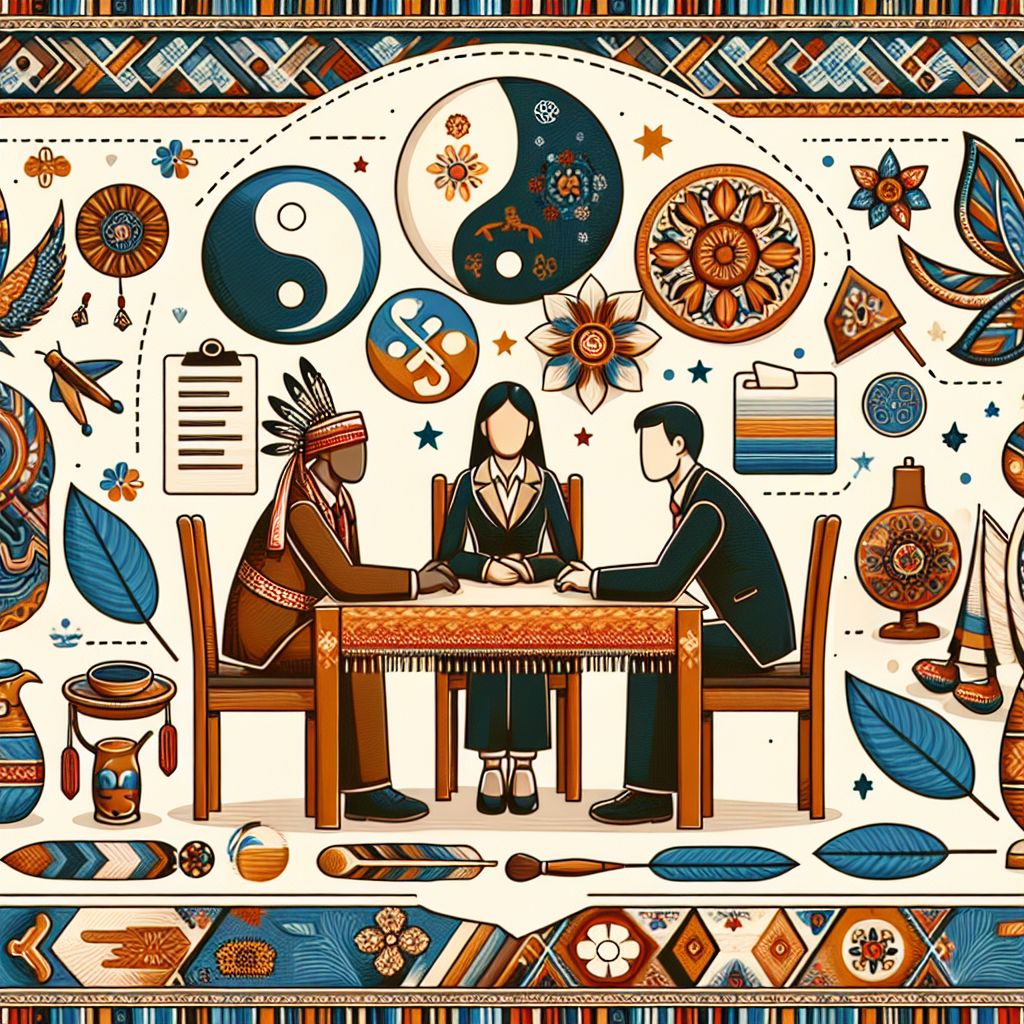Cultural Empathy in Divorce Mediation

Culturally Competent Divorce Mediation: Bridging Differences with Empathy
Introduction
Divorce can be a difficult and emotionally charged process, even without the added challenge of cultural differences. In today’s increasingly diverse society, it is not uncommon for couples going through a divorce to come from different cultural backgrounds. This can present unique challenges in the mediation process, as cultural differences can affect the way individuals approach conflict and communication.
Understanding Cultural Empathy in Divorce Mediation
Cultural empathy refers to the ability to understand and appreciate the perspectives and experiences of individuals from different cultural backgrounds. In the context of divorce mediation, this means being able to recognize and respect the cultural values, beliefs, and communication styles of both parties involved.
Mediators who are culturally empathetic are better equipped to navigate the complexities of working with diverse couples and can facilitate a more successful mediation process. They are able to create a safe and inclusive environment for both parties to express their needs and concerns, and help them find mutually acceptable solutions.
The Importance of Cross-Cultural Competence in Mediation
Cross-cultural competence is essential for mediators working with diverse couples. It involves having the knowledge, skills, and attitudes necessary to effectively bridge cultural differences and facilitate communication and understanding between parties.
Without cross-cultural competence, mediators may unintentionally make assumptions or judgments based on their own cultural biases, which can hinder the mediation process and lead to further conflict. It is crucial for mediators to develop cultural intelligence and continually educate themselves on different cultural norms and values.
Challenges of Divorce Mediation for Diverse Couples
The mediation process can be particularly challenging for couples from different cultural backgrounds. Some of the common challenges include:
- Different communication styles: In some cultures, direct and assertive communication is valued, while in others, indirect and subtle communication is preferred. This can lead to misunderstandings and misinterpretations during mediation.
- Cultural taboos and sensitivities: Certain topics or behaviors may be sensitive or taboo in certain cultures, making it difficult for individuals to express themselves openly during mediation.
- Power imbalances: In some cultures, traditional gender roles and power dynamics may affect the dynamics of the mediation process, particularly if one party holds more power or authority.
Strategies for Culturally Sensitive Mediation
Here are some strategies mediators can employ to promote cultural sensitivity in divorce mediation:
- Develop cultural awareness: It is important for mediators to educate themselves on different cultural values, norms, and communication styles in order to better understand and relate to the parties involved.
- Establish ground rules: During the initial session, mediators should establish ground rules that promote respect and sensitivity towards cultural differences. This can include guidelines for communication and addressing any cultural taboos.
- Encourage open communication: Mediators should create a safe and non-judgmental space for both parties to express their needs and concerns. This can help build trust and understanding between the parties.
- Use a neutral and inclusive approach: It is important for mediators to remain neutral and avoid favoring one cultural perspective over the other. They should also be mindful of any unconscious biases that may affect their approach.
- Utilize interpreters if necessary: In cases where language barriers exist, mediators should work with professional interpreters to ensure effective communication and understanding between parties.
The Role of Cultural Diversity in Divorce Mediation
Cultural diversity can actually bring value to the mediation process. It allows for different perspectives and approaches to problem-solving, which can lead to more creative and mutually beneficial solutions.
Mediators who are skilled in managing cultural diversity can help parties recognize the strengths and benefits of their cultural differences, rather than viewing them as obstacles. This can lead to a more positive and productive mediation process.
Benefits of Multicultural Divorce Mediation Services
There are several benefits of utilizing multicultural divorce mediation services:
- Promotes understanding and empathy: By incorporating cultural empathy into the mediation process, parties can gain a better understanding of each other’s perspectives and experiences, leading to more effective communication and problem-solving.
- Reduces conflict and tension: Mediators who are culturally sensitive and competent can help de-escalate tensions and facilitate a more collaborative and cooperative environment for parties to reach agreements.
- Respects cultural values and beliefs: By acknowledging and respecting cultural values and beliefs, parties are more likely to feel heard and understood, which can lead to more mutually acceptable solutions.
- Addresses power imbalances: A culturally competent mediator can help mitigate power imbalances that may exist between parties, ensuring that both voices are heard and considered in the mediation process.
Addressing Cultural Differences and Communication Styles
One of the key aspects of promoting cultural empathy in divorce mediation is addressing and understanding the cultural differences and communication styles of the parties involved.
Mediators should be aware of their own cultural biases and be open to learning about and adapting to the cultural norms and values of the parties. This can involve asking open-ended questions, actively listening, and being non-judgmental in their approach.
Mediators should also be aware of different communication styles and be prepared to bridge any gaps that may arise. This can involve using visual aids, allowing for breaks during discussions, and using neutral language.
Culturally Competent Mediators: Training and Qualifications
In order to effectively incorporate cultural empathy into divorce mediation, it is important for mediators to receive training and education on cultural competence. This can involve courses on cultural awareness, diversity and inclusion, and cross-cultural communication.
Mediators can also seek certification in cultural competency or become members of professional organizations that provide resources and support for mediators working with diverse populations.
Promoting Cultural Empathy in Divorce Mediation for a More Successful Outcome
Incorporating cultural empathy into divorce mediation is crucial for promoting understanding, respect, and effective communication between parties. By being aware of and addressing cultural differences and utilizing culturally sensitive strategies, mediators can help couples from different cultural backgrounds reach mutually acceptable agreements and ensure a more successful outcome for all involved.



